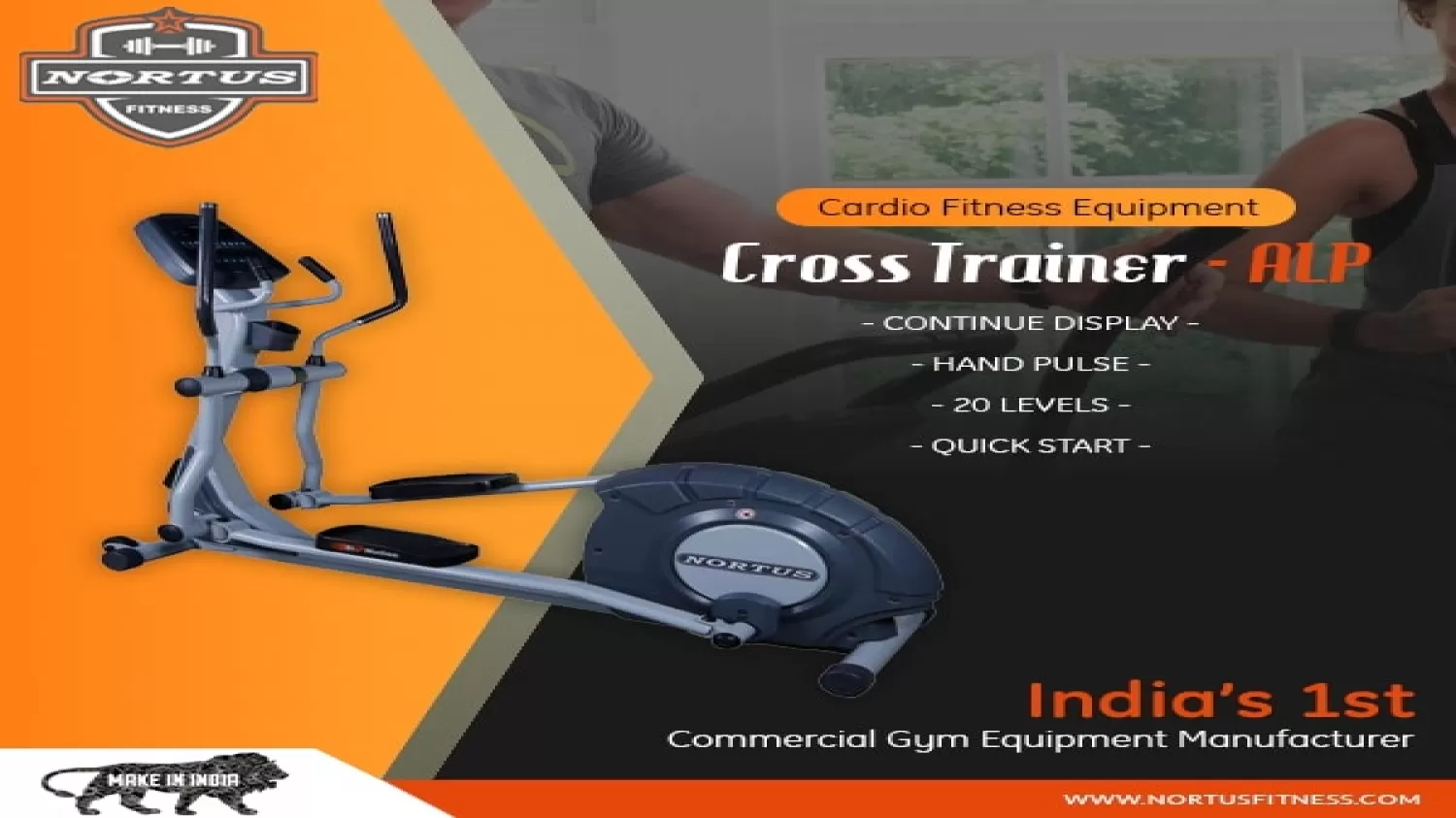Commercial gym equipment refers to fitness machines and equipment used in commercial gyms and fitness centers. These machines are designed for frequent use and are typically larger, more durable, and more advanced than the equipment found in home gyms.
Elliptical: The best commercial elliptical machine are a type of machine that provides a low-impact cardiovascular workout. They mimic the motion of running, but the user's feet stay in contact with the footpads at all times.
Stationary Bikes: These are a type of equipment used for cardiovascular exercise. They mimic the motion of riding a bicycle, but the user is seated in a stationary position.
Weight Machines: Weight machines are designed to target specific muscle groups and provide resistance training. They include equipment such as leg presses, leg curls, chest presses, and lat pulldowns.
Free Weights: Free weights, such as dumbbells, barbells, and kettle bells, allow for a greater range of motion and can be used to target specific muscle groups.
Cable Machines: Cable machines use cables and weight stacks to provide resistance training. They can be used to perform exercises such as triceps extensions, bicep curls, and lateral pulldowns.
Smith Machines: Smith machines are a type of weight machine that uses a barbell that slides along vertical rails. They provide a controlled environment for weightlifting and can be used for exercises such as squats, bench presses, and shoulder presses.
Overall, commercial gym equipment is an important component of commercial gyms and fitness centers, providing users with a variety of options for their workouts. The equipment is designed to be safe, durable, and effective for a wide range of users.
Gym machines are used to provide resistance and support during exercise, helping to improve strength, endurance, and overall fitness. The use of gym machines can also help to prevent injury, as they provide a controlled environment for weightlifting and other forms of resistance training.
Purpose: Determine the purpose of the equipment and what you hope to achieve through its use. This will help you determine the type of equipment that is best suited for your needs.
Space: Consider the space you have available for the equipment, as well as any restrictions on size or height.
Budget: Determine your budget for the equipment, and stick to it. Remember, the most expensive equipment is not always the best.
Quality: Look for equipment that is well-constructed and made from high-quality materials. Equipment that is made with flimsy materials is more likely to break or wear out quickly.
Warranty: Look for equipment that comes with a warranty, and make sure you understand the terms and conditions of the warranty.
Brand Reputation: Choose equipment from reputable brands with a good track record. Check online reviews and read customer feedback to get a better idea of the quality of the equipment.
Maintenance: Consider the maintenance required for the equipment, as well as any costs associated with maintenance.
Professional Opinion: Consider seeking the advice of a professional trainer or fitness expert to help you choose the best equipment for your needs.
By considering these factors and doing your research, you can ensure that you make a smart purchase and choose gym equipment that will help you reach your fitness goals.
Types
Treadmills: These are popular pieces of equipment used for cardiovascular exercise. They have a belt that moves beneath the user's feet, allowing them to run or walk in place.Elliptical: The best commercial elliptical machine are a type of machine that provides a low-impact cardiovascular workout. They mimic the motion of running, but the user's feet stay in contact with the footpads at all times.
Stationary Bikes: These are a type of equipment used for cardiovascular exercise. They mimic the motion of riding a bicycle, but the user is seated in a stationary position.
Weight Machines: Weight machines are designed to target specific muscle groups and provide resistance training. They include equipment such as leg presses, leg curls, chest presses, and lat pulldowns.
Free Weights: Free weights, such as dumbbells, barbells, and kettle bells, allow for a greater range of motion and can be used to target specific muscle groups.
Cable Machines: Cable machines use cables and weight stacks to provide resistance training. They can be used to perform exercises such as triceps extensions, bicep curls, and lateral pulldowns.
Smith Machines: Smith machines are a type of weight machine that uses a barbell that slides along vertical rails. They provide a controlled environment for weightlifting and can be used for exercises such as squats, bench presses, and shoulder presses.
Overall, commercial gym equipment is an important component of commercial gyms and fitness centers, providing users with a variety of options for their workouts. The equipment is designed to be safe, durable, and effective for a wide range of users.
Gym machines are used to provide resistance and support during exercise, helping to improve strength, endurance, and overall fitness. The use of gym machines can also help to prevent injury, as they provide a controlled environment for weightlifting and other forms of resistance training.
Tips before you buy
If you're in the market for gym equipment, there are several important factors to consider to ensure that you make a smart purchase:Purpose: Determine the purpose of the equipment and what you hope to achieve through its use. This will help you determine the type of equipment that is best suited for your needs.
Space: Consider the space you have available for the equipment, as well as any restrictions on size or height.
Budget: Determine your budget for the equipment, and stick to it. Remember, the most expensive equipment is not always the best.
Quality: Look for equipment that is well-constructed and made from high-quality materials. Equipment that is made with flimsy materials is more likely to break or wear out quickly.
Warranty: Look for equipment that comes with a warranty, and make sure you understand the terms and conditions of the warranty.
Brand Reputation: Choose equipment from reputable brands with a good track record. Check online reviews and read customer feedback to get a better idea of the quality of the equipment.
Maintenance: Consider the maintenance required for the equipment, as well as any costs associated with maintenance.
Professional Opinion: Consider seeking the advice of a professional trainer or fitness expert to help you choose the best equipment for your needs.
By considering these factors and doing your research, you can ensure that you make a smart purchase and choose gym equipment that will help you reach your fitness goals.








 Need Help ?
Need Help ?